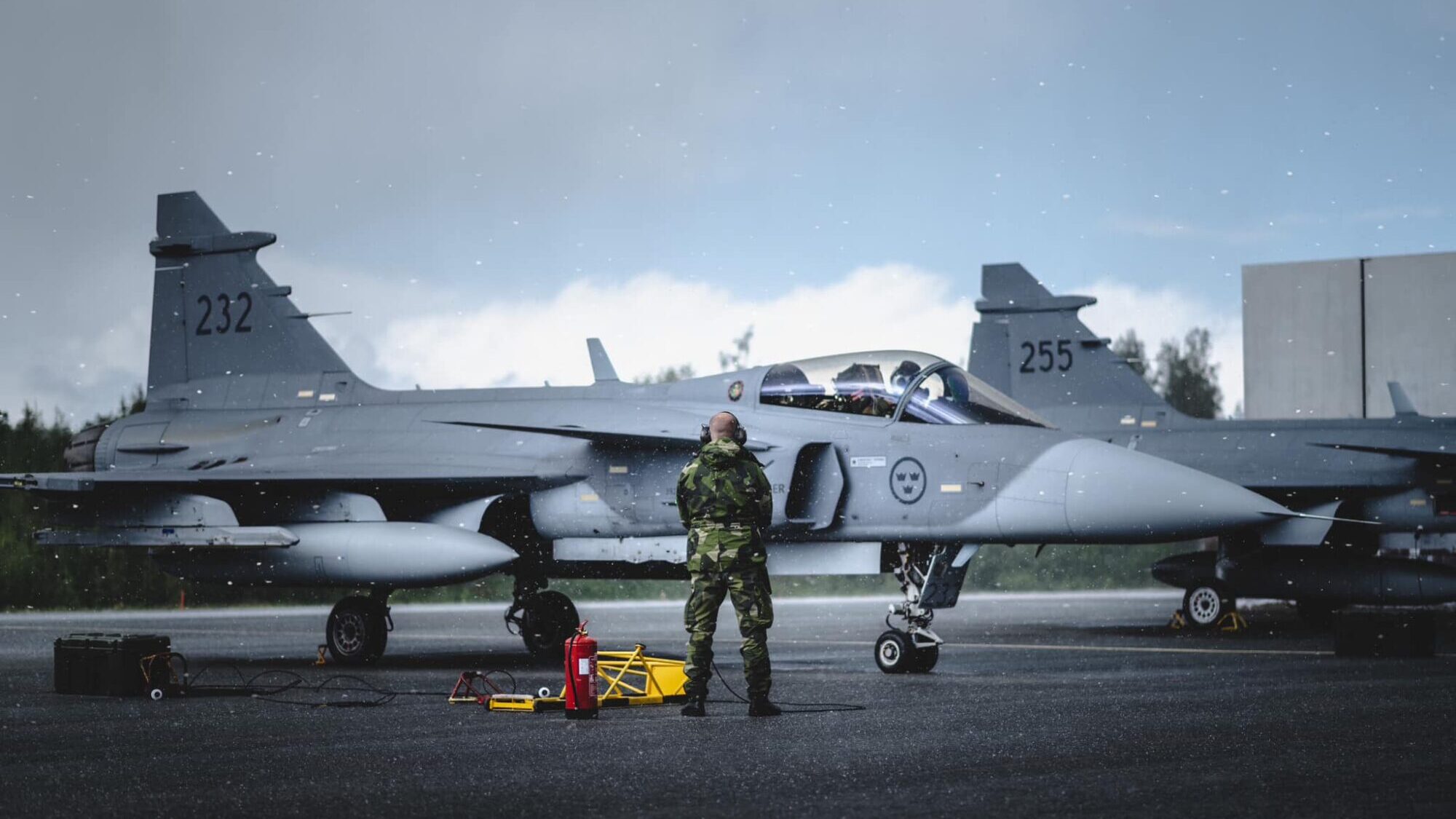
Swedish Air Force personnel stands next to Swedish-made JAS 39 Gripen fighter jets.
Photo: Swedish Armed Forces/Facebook
Despite Moscow being occupied with the war on Ukraine, the possibility of a Russian attack on Sweden is still a relevant threat, a recent report presented by the Swedish Defense Commission at a press conference on Monday, June 19th, concluded, arguing for a new defense doctrine and higher state of general preparedness of the Swedish Armed Forces.
The report, submitted to Swedish Defense Minister Pål Jonson, outlines the Defense Commission’s assessment of the global security environment and the consequences of current developments for Sweden’s security policy while addressing proprieties regarding the country’s upcoming NATO Accession.
Regarding current threats and challenges, the report—titled “Grave Time” (“Allvarstid”)—states that the rules-based international order is at a crossroads and is under attack by autocratic and revisionist states like Russia and China. While it admits that the latter does not present direct threats to Sweden’s security, its actions proliferate instability worldwide, emboldening others—such as Russia—to use military force in their neighborhood.
“An armed attack against Sweden cannot be excluded. Nor can it be ruled out that military force or further threats of such force may be used against Sweden,” the report says.
According to inside sources speaking to Swedish public television SVT news, the defense ministry believes that preparations for a possible conflict should be sped up immediately. Therefore, the report is meant to signal to all levels of the Swedish defense structure that these are indeed “grave times,” as well as send a clear message of deterrence aimed at Moscow.
The paper argues that even if Russian troops are being tied up in Ukraine, that doesn’t mean Moscow stops being a threat—quite the contrary. As the report says:
Russia has further lowered its threshold for the use of military force and exhibits a high political and military risk appetite. Russia’s ability to conduct air, naval, long-range, or nuclear operations against Sweden remains intact. Russia also has the ability to operate with special forces.
Before Sweden’s NATO application, its defense doctrine was based on the principle of neutrality, complemented by a declaration of solidarity with its neighbors. The report sets a new military doctrine, replacing the vague solidarity pledge with full commitment to NATO allies, and declares that:
Sweden’s vital national security interest is to assert our country’s independence, sovereignty, and territorial integrity. We are prepared to use armed force to defend our country, our population, our democracy, our freedom, and our way of life.
However, it’s still unclear when Sweden’s NATO membership will finally be ratified by Turkey, as Ankara continues to use its position to leverage Stockholm into extraditing or at least arresting Kurdish nationals living in Sweden wanted in Turkey on terrorism charges. Earlier this month, some 500 people gathered in the Swedish capital to protest the government’s new anti-terror legislation that is meant to appease Turkey, denouncing not just the law, but NATO membership altogether.
The EU defense chiefs, including Swedish Defense Minister Pål Jonson, will also convene on Tuesday to address the bloc’s security needs.
